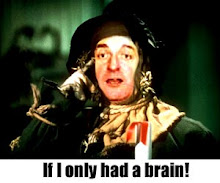Eastern Promises
David Cronenberg, the director behind such infamously disturbing flicks as 'Scanners', 'Rabid', 'Dead Ringers' and 'Videodrome', has switched genres lately. I suppose the cross-over from horror to thriller probably started with the psychological thriller, 'Spider', but with the graphic novel adaptation, 'A History of Violence', the change was explicit. Now with 'Eastern Promises', a tale of the Russian Mafia in London, he continues his foray into crime and that most criminal of genres, the gangster movie.
Not that Cronenberg has toned down the disturbing imagery. In one notably humorous scene, Viggo Mortensen's Nikolai asks those around him to leave the room while he removes all identifying characteristics, eg. teeth and fingers, from a corpse. The audience are not given such an opportunity.
As the screenplay of Steven Knight, the writer behind Frears' 'Dirty Pretty Things', 'Eastern Promises' shares a similar preoccupation with the exploitation of immigrants, in this case the plight of the many very young women brought from the former USSR into prostitution. Mortensen's character is a driver for the Russian crimelord organising this exploitation (among other activities). When a 14 year-old Russian dies giving birth, a British nurse, Anna (Naomi Watts), tries to find the girl's kin and inadvertently gets sucked into this criminal world.
Although not by any means a horror film, Cronenberg never shys away from violence and many a throat is cut in gory detail. This is painful violence and to Cronenberg's credit the audience is never sure when it might erupt and never comfortable when it does. However, if you are expecting a Russian version of 'The Godfather', this is not it. Far from it. The story is a smaller one, the characters more petty. This is real crime, not operatic, just nasty.
It is also nothing we haven't seen before. Every element here can be isolated and shown to appear in another movie; the weak son in 'Road to Perdition'; the made man in 'Goodfellas'; the steamroom killing in 'Gorky Park'; the family parties of 'The Godfather'; etc.. The list goes on: 'Donnie Brasco', 'State of Grace',... It really does go on. However, it would be surprising if it didn't. This is a genre picture after all and necessarily shares its genes with it siblings. What distinguishes this story is its determination to stay outside the gangster family, outraged at the moral attrocities of its chosen subjects. Instead it posits more acceptable alternatives, 'ordinary people' as Sinead Cusack calls herself and her daughter. Of course, as Uncle Stepan retorts, Tatiana, the child-mother who died, was ordinary too.
There is a 'twist', but it's somewhat disappointing and does not win the heartwrenching pull from the audience that ultimately it is there to win. Something is missing in the end. Cronenberg makes all the right moves, but I fear the script is too underplayed to achieve what it wants. Perhaps the relationship between Mortensen and Watts is too slight, or the sacrifice not clear enough. Or more likely, perhaps the twist should not have been a twist at all, but revealed early and played straight throughout. (Naturally I am talking in ciphers here as I don't want to reveal too much: watch it and see for yourself).
This is no gangster masterpiece, and it is far from Cronenberg's best work. But it is an involving, subtly polemical piece that deserves viewing. Full of Eastern promise, it doesn't deliver all, but it just about delivers enough.
Labels: David Cronenberg, Film


0 Comments:
Post a Comment
<< Home